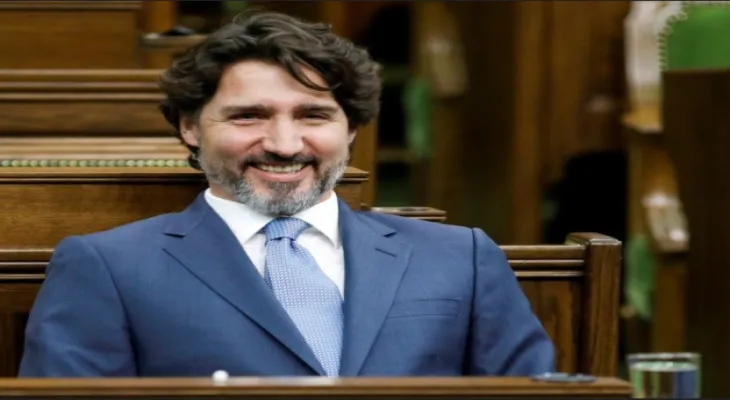Search here
Newspaper
Search here

Arab Canada News
News

Published: November 27, 2022
Like yesterday, the Prime Minister of the Federal Government, Justin Trudeau, also appeared before the Rouleau Committee, confirming that there was consensus around the Incident Response Group (GII / IRG) table regarding the invocation of the Emergencies Act, which was reflected within the government on the eve of invoking the law.
Trudeau was also the last witness to appear before this investigative committee chaired by Judge Paul Rouleau and tasked with determining whether there was justification for the Liberal government’s invocation of the Emergencies Act on February 14, 2022, aimed at ending the protests of truck drivers and other demonstrators opposing the health measures related to the COVID-19 pandemic.
Trudeau pointed out that consensus is not legally required, but in that case, there was a "level of comfort and agreement." He added that if there had been any objection at the Incident Response Group table, it would have been taken into account, affirming that there was no opposition.
The Prime Minister added that he feared the outbreak of violence during the "Freedom Convoy" crisis, a name chosen by the organizers of the demonstrations and protest sit-ins, in February. He argued that the Emergencies Act was the tool that allowed his government to prevent the situation from deteriorating.
"There was militarization of some vehicles... children were used as human shields, particularly on the Ambassador Bridge, there were weapons in Coutts, and there was ideologically driven violence," Trudeau said, describing last winter's "serious threats of violence."
The Ambassador Bridge connects the city of Windsor in Ontario with the city of Detroit in Michigan, USA, and it is the busiest border-crossing connection in North America.
As for Coutts, it is a village in Alberta on the border with the state of Montana, USA, and it includes a customs center, where during the protests in February "heavily armed people who were willing to sacrifice themselves for" what they considered a "cause" were present, as the Royal Canadian Mounted Police (federal police) chief Brenda Lucki had previously told the Rouleau Committee.
Also, according to the Prime Minister, neither the police forces nor the provinces had a plan to deal with the situation.
Judge Rouleau is expected to issue his report next February.
It is also noted that Trudeau’s government’s invocation of the Emergencies Act set a precedent, as it was the first time Canada resorted to using this law which was enacted in 1988 to replace the War Measures Act.
The law defines a national emergency as a "temporary, serious emergency situation" that "poses a grave threat to the lives, health, or safety of Canadians and is of a dimension or nature that exceeds the capacity of a province or its authorities to deal with it."
Comments